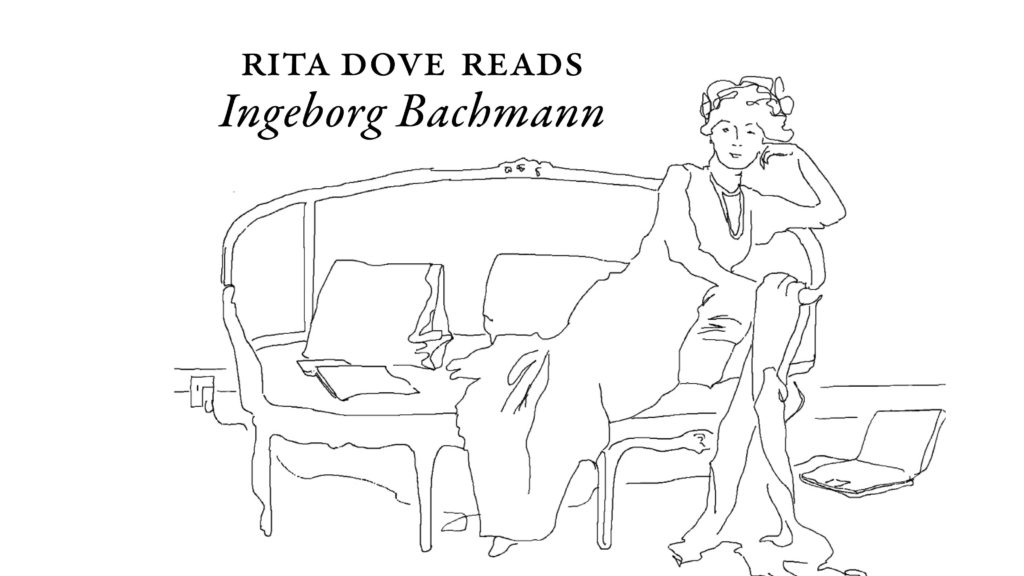The second series of Poets on Couches continues with Rita Dove reading Ingeborg Bachmann’s poem “My Bird,” translated from the German by Mark Anderson. In these videograms, poets read and discuss the poems that are helping them through—broadcasting straight from their couches to yours. These readings bring intimacy into our spaces of isolation, both through the affinity of poetry and through the warmth of being able to speak to each other across distances.
“My Bird”
by Ingeborg Bachmann, translated by Mark Anderson
Issue no. 92 (Summer 1984)
Whatever comes to pass: the devastated world
sinks back into twilight,
the forest offers it a sleeping potion,
and from the tower the watchman’s forsaken,
peaceful and constant the eyes of the owl stare down.Whatever comes to pass: you know your time,
my bird, you put on your veil
and fly through the mist to me.We peer into the haze where the rabble houses.
Yon follow my nod and storm out
in a whirl of feathers and fur—My ice-gray shoulder companion, my weapon,
adorned with that feather, my only weapon!
My only finery: your veil and your feather.And even when my skin burns
in the needle dance beneath the tree,
and the hip-high shrubs
tempt me with their spicy leaves,
when my curls dart like snake tongues,
sway and long for moisture,
the dust of distant stars still falls
right on my hair.When I, in a helmet of smoke,
come back to my senses.
my bird, my nighttime ally,
when I’m ablaze in the night
the dark grove crackles
and I hammer the sparks from my limbs.And when I stay ablaze as I am,
loved by the flame
until the resin streams out of the trunks,
drips over the wounds and
spins the earth warm into thread
(and though you rob my heart at night,
my bird of belief, my bird of faith!)
the watchtower moves into brightness
where you, tranquil now,
alight in magnificent peace—
whatever comes to pass.
Rita Dove, Pulitzer Prize winner and former U.S. Poet Laureate, is the only poet to have been honored with both the National Humanities Medal and the National Medal of Arts. A professor of creative writing at the University of Virginia, she lives in Charlottesville. Her poems “Postlude” and “Naji, 14. Philadelphia.” appeared in the Winter 2020 issue.
from The Paris Review https://ift.tt/3hZtzkR

Comments
Post a Comment